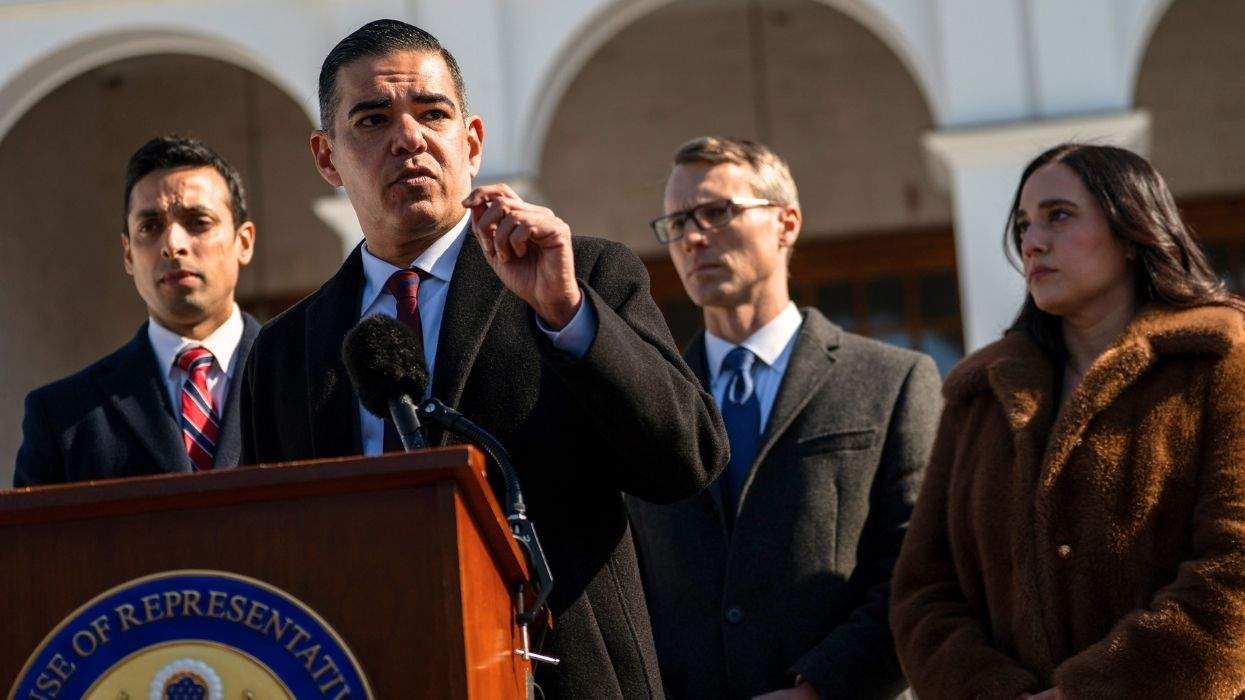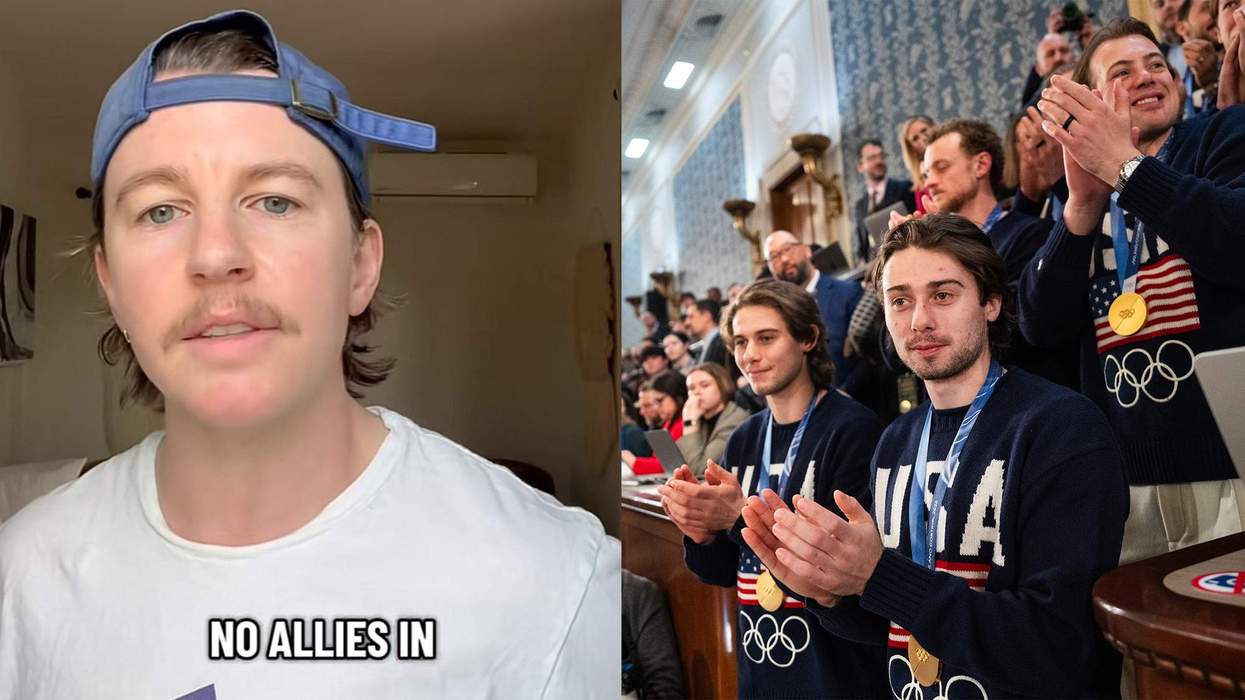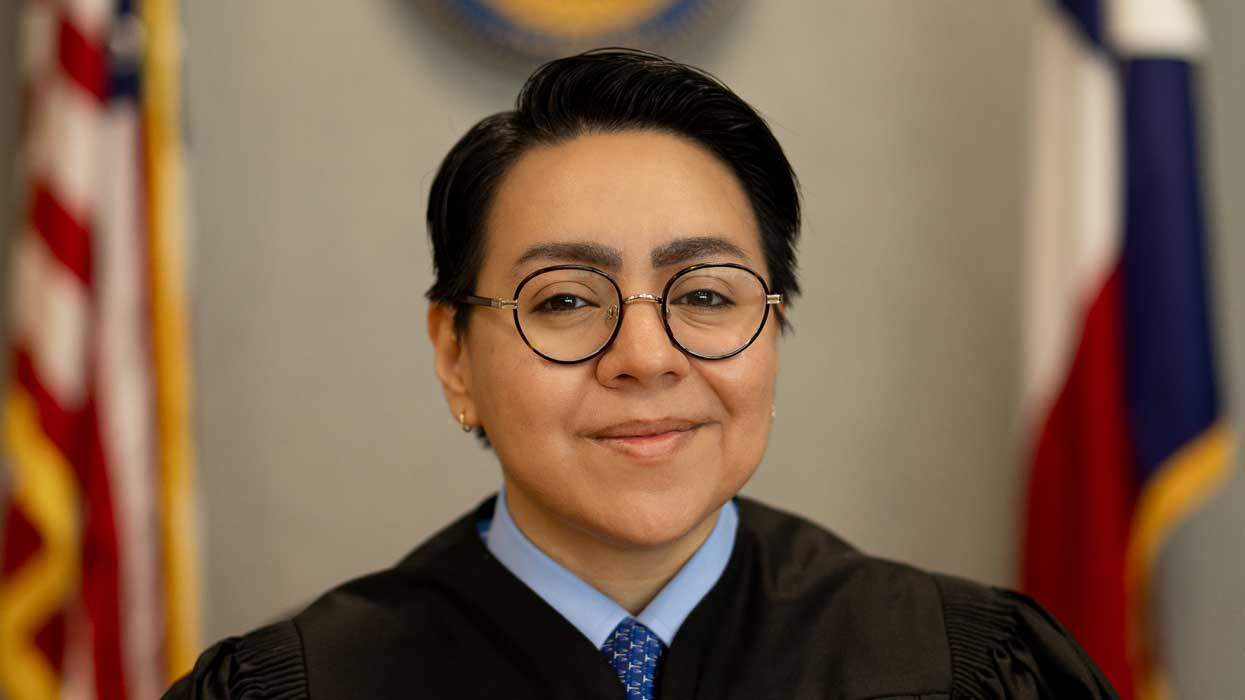In a Thursday decision, the U.S. Supreme Court ruled in favor of disclosing the names of petitioners who called for a ballot measure that could have repealed an expanded domestic partnership rights law in Washington State last year.
The 8-1 ruling, considered in the heated context of the nationwide marriage equality debate, could hold far-reaching implications for public disclosure, including the right to know who contributes to political campaigns against gay rights, and how much they spend.
The case, Doe v. Reed, centered on Referendum 71, a ballot initiative that asked voters whether they wanted to approve or reject a 2009 "everything but marriage law" for same-sex couples. Washington voters affirmed the law by a margin of 53% to 47% in November, but the question of whether to release the names and addresses of petitioners who called for the referendum became the subject of a protracted legal battle.
At issue for the high court was whether petition signers' private
information should be protected under the First Amendment as an
expression of political speech. During oral arguments in April
plaintiffs sought to portray public disclosure as having a chilling
effect on free speech, appealing to
isolated reports of vandalism and harassment following the passage of
the anti-gay-marriage measure Proposition 8 in California. Washington attorney general Rob McKenna argued that
signing a petition qualified as a legislative act, which is not
entitled to anonymity, and that the public interest warranted
disclosure. Retaliation against petition signers were highly infrequent, he argued.
Writing for the majority, Chief Justice John G. Roberts ruled that plaintiffs' arguments about potential harm were ancillary to the fundamental question before the court of whether such disclosure violates the First Amendment. "Faced with the State's unrebutted arguments that only modest burdens attend the disclosure of a typical petition, plaintiffs' broad challenge to the [Washington Public Records Act] must be rejected."
Roberts further noted the civic benefits of such disclosure, writing that it "helps prevent difficult-to-detect fraud such as outright forgery and 'bait and switch' fraud, in which an individual signs the petition based on a misrepresentation of the underlying issue."
Justice Clarence Thomas was the sole dissenting justice in the case.
In placing Referendum 71 on the ballot, opponents of the domestic partnership law collected 138,000 signatures, almost 18,000 more than the amount required to qualify the initiative. The Washington Public Records Act treats the names and address information of petition signers as public record, but the antigay group Protect Marriage Washington filed a lawsuit that sought to keep the information secret.
Shannon Minter, legal director at the National Center for Lesbian Rights, said he was "relieved" and called the decision "very strong" given the large majority and the fact that the Chief Justice himself authored the decision.
"The court reaffirmed that as a general rule, laws requiring disclosure are absolutely valid and do not violate the First Amendment," said Minter, who attended the oral arguments in April. "That was the radical and shocking claim that the antigay groups were making in this case."
Minter called the claim "novel" and said the decision is a win for all vulnerable populations.
"The antigay groups not only want to strip rights away from gays and other vulnerable minorities, but now they want to do it secretly," he said.
The petitioners will not be disclosed immediately due to the fact that another case, Family PAC v. Reed, is pending in Washington in which the same group contends that considerable harm and harassment could come to the petitioners if their names were made public.
But Minter said he was confident that they would lose that case.
"That evidence simply doesn't exist," he said. "The irony here is that there is actually very strong evidence of harassment of the LGBT population following these antigay measures."
A statement from Anne Levinson, chair of the pro-equality group Washington Families Standing Together, noted that the court's decision was the third loss in as many tries for the state's antigay forces on Referendum 71.
"First the State Public Disclosure Commission said 'no' when these same groups tried to hide their donors," she said. "Then voters approved Referendum 71, retaining the law, by more than 53%. Now the U.S. Supreme Court has ruled against the proponents' attempt to undermine disclosure laws."
As for the next attempt, Levinson noted that an amicus brief filed by political scientists in Doe v. Reed reported that the plaintiffs did not present "a single verified threat" to any signer of a ballot measure petition in any state in any election.
As the brief states, said Levinson, "More than a million names of signers of petitions for referenda and initiatives opposing gay marriage have been posted on the Internet, yet there is no evidence that any of these signers has faced any threat of retaliation or harassment by reason of that disclosure."
Josh Friedes, executive director of Equal Rights Washington, which works closely with Levinson's group, said gay rights opponents have only presented a distraction from the bigger issues facing the LGBT community, through this court case.
"What the radical right has been trying to for the past couple of years has been bully the LGBT community, and other minority communities, and the court took a stand for transparency, ethics, and honesty in government," he said.
Still, Friedes said, there is work to be done. ERW will refocus its objectives to continue legislative efforts to expand current domestic partnership laws, which currently do not address parental rights, nor does the state recognize marriages or civil unions from places where such distinctions are legalized for gay couples like Vermont or Canada.















